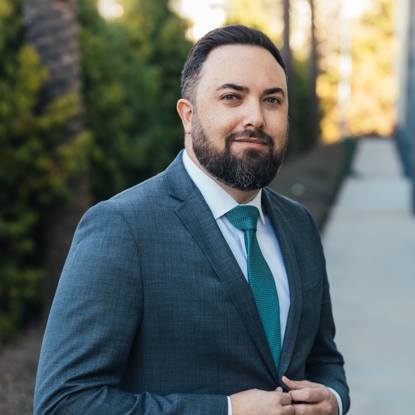
California Sexual Abuse Attorneys
Empowering Survivors Through Compassionate Legal Counsel
At The Zalkin Law Firm, LLP, we are proud to advocate for the survivors of sexual abuse and assault. We understand how difficult and impossible it can seem to seek justice for the traumatic abuse you suffered, which is why we provide compassionate and caring legal counsel to sexual abuse survivors. No one should have to stand alone against their abuser.
We are nationally regarded as one of the most successful sexual abuse law firms because our attorneys have helped win landmark cases against some of the largest organizations and institutions globally. We have also represented hundreds of survivors in both multi-victim and single-victim sex abuse cases. While no firm can guarantee a favorable outcome for any client’s case, a proven track record of success demonstrates a practice’s knowledge, understanding, and prowess.
Call The Zalkin Law Firm, LLP today at (800) 477-2989 or contact us online to schedule a meeting with our sexual abuse attorneys in California!

California Sexual Abuse Law
Sexual abuse in California is one of the many categories of “sex crimes,” a blanket term for a multitude of offenses related to unwanted sexual activities performed without the consent of one of the parties involved. Examples of sex crimes include:
- Sexual assault and battery: These are both defined as any form of nonconsensual touching of another person’s intimate areas with sexual intent. This includes when an abuser forces another person (without their consent) to either touch themselves or touch the abuser’s intimate parts with sexual intent. Some other examples include unwanted kissing, groping, and rubbing.
- Rape: Nonconsensual sexual intercourse — often involving some form of penetration — achieved through violence or threats of violence, as well as in situations in which the victim is unable to give consent. For instance, by law, people under the influence of drugs or alcohol are not able to consent to sexual acts.
- Child molestation: Any lewd acts involving a child under the age of 14, including touching with sexual intent, child pornography, and child prostitution.
- Statutory rape: Engaging in sexual acts with anyone under 18 years old, which is the age of consent in California. By state law, minors cannot truly “give” consent.
- Sexual harassment: An umbrella term for any unwanted sexual advances or comments, as well as soliciting sexual activity through coercion.
Unfortunately, victims of sex crimes may be unsure about what legal options are available to them. Our caring lawyers can discuss your case with you and help you determine the best course of action, offering an ear free of judgment throughout the entire legal process.


A Record of Success
Examples of Some of Our Successful Cases:
The Zalkin Law Firm, LLP has cultivated a record of proven success in high-stakes personal injury cases across the state of California and the U.S. As a firm experienced in fighting for victims, we have won millions in verdicts and settlements for injured victims and their families.
-
$8,000,000 Clergy Sexual Abuse
Multi-VictimMulti-victim case against a religious leader and institution.
-
$4,200,000 Clergy Sexual Abuse
Multi-VictimThree survivors abused as minors by priests associated with a Northern California Diocese.
-
$660,000,000 Clergy Sexual Abuse
Multi-VictimIrwin Zalkin was one of the lead trial lawyers and part of the trial team prepared to commence a 14 victim trial against the Roman Catholic Archbishop of Los Angeles, the day a global settlement was reached in the amount of $660,000,000.
-
$4,250,000 Child Sexual Abuse
Single Victim$4.25 Million paid to single sexual abuse Plaintiff.
-
$4,150,000 Child Sexual Abuse
Single Victim$4.15 Million paid to single sexual abuse Plaintiff.


Why Choose The Zalkin Law Firm, LLP?
-
Education
We engage in conferences, speak to professionals, and present to leaders & community members to foster education on Child Sexual Abuse
-
Litigation
We hold those accountable by taking legal action. Let us fight for you, so you can begin the healing process.
-
LegistlationWe are actively trying to change the laws and have the state legislature address the most pressing issues.
What is the Statute of Limitations for a Sex Abuse Claim in California?
Fortunately, California takes sexual abuse cases very seriously. There are multiple statutes of limitations surrounding sexual abuse, and a lawyer can help survivors determine which statute of limitation applies to their case.
The statute of limitations in California, Assembly Bill (AB) 1619, allows survivors who were 18 or older at the time of the abuse ten years from the date of the last abuse to file a claim or three years after the date the survivor discovered an injury related to the abuse — whichever is later. AB 1619 went into effect on January 1, 2019, so if the abuse occurred before this date, survivors only have three years after the last abuse occurred or after they discovered an abuse-related injury.
The state of California offers a larger window of time for victims of childhood sexual abuse under AB 218, allowing child sexual abuse survivors three years from January 1, 2020, to file claims that previously expired under the old statute of limitations, regardless of the survivor’s current age. AB 218 allows survivors until the age of 40 to file a claim, or five years after an injury resulting from the abuse was discovered. Again, these deadlines hinge on whichever occurs later.

Leaders in Innovation, Change, & Justice
Meet Our Dedicated Team of Legal Professionals
Common Signs of Sexual Abuse
Sexual abuse is a traumatic and profoundly distressing experience, and it can manifest in various signs and symptoms, which may vary from person to person. It's important to note that these signs do not necessarily indicate sexual abuse on their own, but they could be potential indicators that someone has experienced sexual abuse. Some common signs of sexual abuse include:
- Behavioral Changes:
- Sudden and unexplained changes in behavior, mood, or personality.
- Increased aggression or withdrawal from social activities.
- Regressive behaviors like bedwetting, thumb-sucking, or excessive clinging.
- Sexual Knowledge and Behavior:
- Age-inappropriate knowledge about sexual acts, anatomy, or language.
- Engaging in explicit sexual play with toys or other children.
- Sexualized behavior that is inconsistent with their age.
- Fear and Anxiety:
- Frequent nightmares or night sweats.
- Fear or avoidance of specific people, places, or activities.
- Generalized anxiety, panic attacks, or phobias.
- Sleep Disturbances:
- Insomnia or difficulty falling asleep.
- Nightmares or night terrors.
- Changes in Eating Habits:
- Loss of appetite or overeating as a coping mechanism.
- Unexplained weight loss or gain.
- Self-Harm and Risky Behavior:
- Engaging in self-harming behaviors such as cutting.
- Engaging in risky behaviors like substance abuse or promiscuity.
- Post-Traumatic Stress Symptoms:
- Flashbacks or intrusive thoughts related to the abuse.
- Hypervigilance, irritability, and a heightened startle response.
- Physical Symptoms:
- Unexplained pain, bleeding, or discomfort in the genital or anal areas.
- Sexually transmitted infections (STIs) in a child or non-consensual victim.
- Changes in Relationships:
- Difficulty forming or maintaining relationships.
- Fear of physical contact or intimacy.
- Difficulty trusting others.
- Changes in Emotional Well-being:
- Sudden mood swings, depression, or suicidal thoughts.
- Emotional numbness or emotional outbursts.
- Low self-esteem, shame, or guilt.

-
I showed up to my relationship with The Zalkin Law Firm, LLP messy, terrified and in severe distress. Ryan, Devin and Irwin held space for me and all of my pain. They honored my story, treated me with kindness, and gave me a safe place to begin the healing process. The greatest gift of all is this; each time I asked for a hero, they handed me a sword. I was empowered.- Kate
-
“Having been privileged to work with these professionals, I highly recommend and trust them to handle any sexual abuse case in confidence and handled with the utmost of confidentiality and integrity anyone would desire as a victim or a survivor.”- Guy
-
“My experience with The Zalkin Law Firm, LLP has been life-altering. It was a pleasure to work with every employee at the firm. They made me feel as if they genuinely cared about me while maintaining a professional statute.”- Alex
-
“The Zalkin Law Firm, LLP does not just represent their clients, The feeling they put into their cases makes you feel like you are part of a family. I can proudly say that I am part of a brotherhood and sisterhood of genuine and caring people.”- Jason

Contact Our California Sexual Abuse Lawyers Today
At The Zalkin Law Firm, LLP, we are committed to standing with survivors of sexual abuse, providing compassionate and knowledgeable legal representation every step of the way. We understand the profound impact that abuse can have on your life, and we are dedicated to helping you navigate the complex legal landscape with care and sensitivity. Whether holding perpetrators accountable, seeking justice against negligent institutions, or offering a supportive environment through a trauma-informed approach, we aim to empower you to reclaim your voice and pursue the justice you deserve. While no legal outcome can undo the harm done, we strive to provide the support and advocacy needed to help you move forward. If you or a loved one is ready to take the next step, we are here to help you find a path toward healing and closure.
Contact The Zalkin Law Firm, LLP today to schedule a meeting with our sexual abuse lawyers in California






